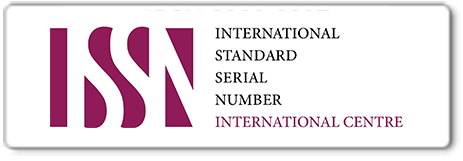Analysis of the Modern Era's Financial and Islamic Economic Importance
DOI:
https://doi.org/10.59086/ijest.v1i4.203Keywords:
Modern Era, Financial, Islamic EconomicAbstract
References
Chapra, M. Umer, 2011 “Masa Depan Ilmu Ekonomi Sebuah Tinjauan Islam” (terjemahan dari: The Future of Economics: An Islamic Perspective), Jakarta: Gema Insani Press.
Farida dan Nur Laila Zulaini, Pengaruh Dimensi Pengembangan Pengetahuan, Peningkatan Keterampilan Baru, dan Kesadaran Masyarakat terhadap Kinerja Maqasid, Cakrawala, Vol.X, No. 1, 2017.
Hakim, Atang Abd,2011 “Fiqh Perbankan Syari’ah”, Bandung: Refika Aditama.
Imaniyati, Neni Sri 2017, Asas dan jenis akad dalam hukum ekonomi syariah: implementasinya pada usaha bank syariah, Mimbar, Vol XXVII, No. 2.
Karim, Adiwarman A 2002., “Ekonomi Islam: Suatu Kajian Ekonomi Makro”, Jakarta: the International Institute of Islamic Thought Indonesia.
Karim, Adiwarman A.2007, Pengembangan Ekonomi Islam dan Perannya dalam Peningkatan Kesejahteraan Umat, Tarjih Vol. 9.
Mannan, Abdul 1993, “Teori dan Praktek Ekonomi Islam”, Yogyakarta: Wakaf.
Mardani 2011, Hukum Ekonomi Syariah di Indonesia. Bandung: PT Refika Aditama.
Mofid, Moh 2017., Kaidah Fiqh Ekonomi Syariah: Teori dan Aplikasi Praktis, Jakarta: ebookuid.
Naqvi, Syed Nawab Haider 2003, “Menggagas Ilmu Ekonomi Islam” (terjemahan dari: Islam, Economics, and Society), Yogyakarta: Pustaka Pelajar.
Pusat Pengkajian dan Pengembangan Ekonomi Islam (P3EI) 2012. “Ekonomi Islam”. Jakarta: PT Raja Grafindo Persada.
Rahman, Afzalur 1995. Doktrin Ekonomi Islam Jilid I. Yogyakarta: Dana Bhakti Wakaf.
Downloads
Published
How to Cite
Issue
Section
License
Copyright (c) 2022 Siti Mujiatun

This work is licensed under a Creative Commons Attribution 4.0 International License.
International Journal Of Economics Social And Technology under the terms of a Creative Commons Attribution 4.0 International License / CC BY 4.0 This license permits anyone to copy and redistribute this material in any form or format, compose, modify, and make derivative works of this material for any purpose, including commercial purposes, so long as they include credit to the Author of the original work.
Most read articles by the same author(s)
- Siti Mujiatun, Consumptive Patterns and Cultural Hedonism of the Muslim Millennial Generation in Terms of an Islamic Economic Perspective , International Journal Of Economics Social And Technology (IJEST): Vol. 2 No. 1 (2023): 2023, March


















